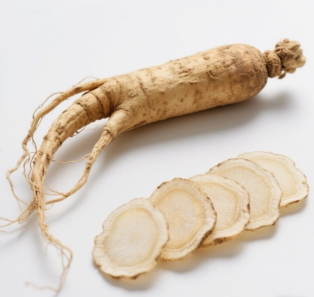"The homology of medicine and food" originates from classic Chinese medicine theories such as "The Yellow Emperor's Neijing", emphasizing "food therapy and health" and "treatment of diseases".
The homology of medicine and food is an important concept in traditional Chinese medicine and food culture, which refers to the homology of certain foods and medicines, which can be used as daily diet and have certain medicinal value. In recent years, this concept has gained traction in the field of health and wellness.
Common medicinal and edible homologous ingredients (tonic)
Qi replenishment: ginseng, codonopsis, astragalus, jujube, yam, etc., have the effects of increasing immunity, tonifying lung qi, and benefiting spleen;
Nourishing yin: Dendrobium officinale, lily, polygonatum japonica, yellow essence, etc., have the effects of nourishing kidney yin, tonifying lung yin, nourishing stomach yin, and benefiting liver yin;
Yang-boosting: Tianshan Snow Lotus, Cistanche, Walnut Kernel, Yizhiren, etc., have the functions of helping kidney yang, heart yang, and spleen yang;
Nourishing blood: Angelica, Ejiao, longan meat, mulberry seeds, etc., have the effects of invigorating qi and replenishing blood, treating blood deficiency and other diseases.
1、 Ginseng


"Shennong's Materia Medica" records: ginseng is sweet and slightly cold, the main tonic of the five organs, calms the spirit, calms the soul, stops palpitations, removes evil spirits, brightens the eyes, and is happy and intellectual. Wear for a long time, light and prolong.
According to the 2020 edition of the Pharmacopoeia of the People's Republic of China, ginseng is sweet, slightly bitter, and slightly lukewarm. Return to the spleen, lungs, heart, and kidney meridians. It has the effects of greatly replenishing vitality, restoring the pulse and strengthening the lungs, nourishing the spleen and lungs, nourishing the blood, calming the nerves and intellect. It is used for body weakness, cold limbs and weak pulse, spleen deficiency and less food, lung deficiency, wheezing and coughing, thirst from the wound, internal heat and thirst, qi and blood deficiency, long-term illness deficiency, palpitations and insomnia, impotence and uterine cold.
Modern pharmacological studies have shown that ginseng has a variety of pharmacological effects such as anti-tumor, anti-aging, improving immunity, enhancing memory, protecting the liver and detoxifying, and improving sleep.

2、 Dendrobium


The medicinal value of Dendrobium officinalis has been recorded as early as in the Compendium of Materia Medica. Li Shizhen mentioned in the book that it "nourishes yin and moisturizes dryness, nourishes the stomach and nourishes the body", which is especially suitable for lung deficiency and long-term cough, dry mouth and tongue. Dendrobium officinale can not only moisten the lungs and nourish yin, but also strengthen the body, improve the condition of qi and blood, and is a good medicine for blindly nourishing the whole body.
According to the 2020 edition of the Pharmacopoeia of the People's Republic of China, it is sweet and slightly cold. Return to the stomach and kidney meridians. It has the effect of nourishing the stomach and nourishing yin and clearing heat. It is used for fever and injury, dry mouth and polydipsia, lack of stomach yin, lack of food and retching, deficiency of heat after illness, yin deficiency and fire, bone steaming and exertion, dark eyes, weak muscles and bones, etc.
Modern pharmacological studies have shown that Dendrobium officinale has pharmacological effects such as nourishing the liver and kidneys, invigorating qi and brightening eyes, strengthening yin and improving essence, improving sleep, enhancing immunity, strengthening muscles and bones, inhibiting tumors, and anti-cancer, and its medicinal value comes from its rich active ingredients, such as polysaccharides, alkaloids, phenolic compounds, etc.
3、 Tianshan Snow Lotus


"Compendium of Materia Medica", "Chu Ci", "Historical Records", "Classic of Mountains and Seas", "Uygur Medicine", "Xinjiang Handbook of Traditional Chinese Medicine" all have records of the function of snow lotus: there is snow lotus in the Tianshan Mountains, which is born in the mountains, and has the function of removing cold and aphrodisiac, strengthening tendons and soothing nerves, treating soreness and weakness of waist and knees, and is a good product for prolonging life. Throughout the ages, Tianshan Snow Lotus has always been a nourishing product that people dream of.
According to the 2020 edition of the Pharmacopoeia of the People's Republic of China, it has a slightly bitter taste, a warm nature, and belongs to the three meridians of the liver, spleen, and kidney.
Modern pharmacological studies have shown that Tianshan Snow Lotus has anti-inflammatory, anti-tumor, antioxidant, immunomodulatory, hypolipidemic and other pharmacological effects, and its medicinal value comes from its rich active ingredients, such as flavonoids, polysaccharides, chlorogenic acid, etc.